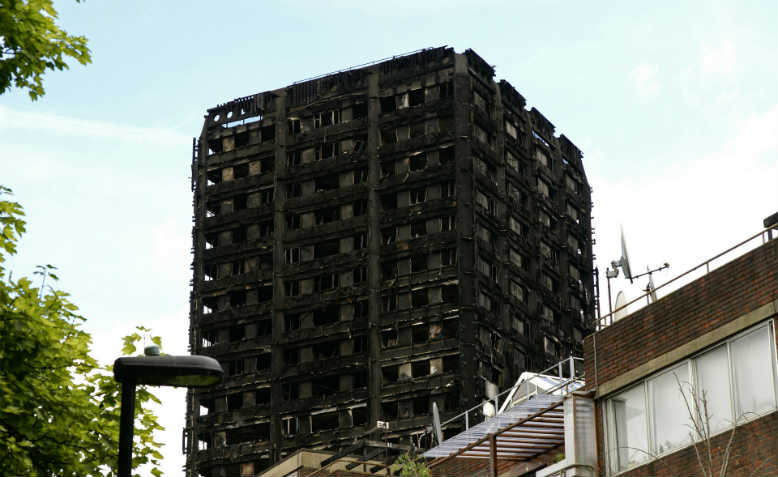 Grenfell Tower. Photo: Flickr/ChiralJon
Grenfell Tower. Photo: Flickr/ChiralJon
The authorities’ behaviour towards the victims of the tragedy shows it hasn’t learnt any lessons
On the 14th June 2017, a fire started on the fourth floor of the recently refurbished Grenfell Tower and spread quickly via its new combustible cladding, killing 71 people.
The fall-out from this event has exposed the lethal disconnect between the ruling establishment and the working class in an austerity-driven UK.
Eight months on, only 42 of over 200 Grenfell Tower households in need of rehousing have permanent homes, the NHS says thousands will suffer from the psychological impact of the fire, and hundreds of buildings across the country have been found to have the same or similar combustible cladding.
The formal Inquiry has now begun, but what lessons are the establishment prepared to learn.
Community
The Inquiry’s procedural hearings started on 11th December 2017 with no panel of resident and community representatives. The idea was directly rejected at the outset, and again in December 2017.
KPMG were appointed as auditors though, despite multiple documented conflicts of interest including auditing Rydon Group, who refurbished Grenfell Tower. In January 2018 KPMG’s contract with the Inquiry was finally cancelled but only after campaigning work including an open letter signed by 70 academics and activists.
So, the community is still having to fight to get its voice included, whilst the establishment apparently sees no divide between itself and those it is investigating.
Tellingly, the Equality & Human Rights Commission (EHRC) has now announced its own inquiry into whether authorities failed in their ‘duty to protect life’ describing this aspect as ‘missing’ from the main Inquiry.
Deregulation
Emergency investigations post-Grenfell found 262 tall residential towers across England to have combustible cladding.
The Independent Review of Building Regulations and Fire Safety gave an Interim Report in December 2017 which states ‘. . . the current regulatory system for ensuring fire safety in high-rise and complex buildings is not fit for purpose’.
Of course, it’s not. Deregulation allowed the profit motive into the heart of regulatory systems, effectively subverting safety protocols which should protect.
Perish
Grenfell Tower has brought an unprecedented clarity to public understanding of Britain’s vicious class divide. But the authorities’ subsequent behaviour towards the community reveal an establishment that has not learnt any significant lessons, because it cannot admit this basic truth: “. . . when [bourgeois] society . . . knows that these . . . victims must perish, and yet permits these conditions to remain, its deed is murder just as surely as the deed of the single individual.” (‘Condition of the Working Class in England’) Friedrich Engels, 1845).

